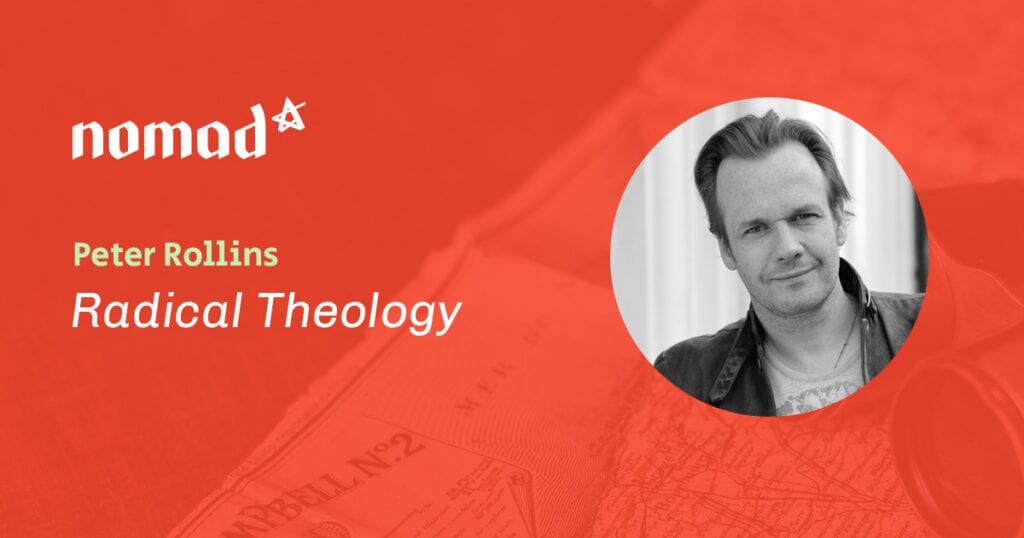In this episode we discuss radical theology with author, philosopher and storyteller Peter Rollins. Peter explores the freedom that comes when we accept and embrace the lack within us and the struggle within life. He believes that letting go of the frenetic pursuit of that which will make us whole and complete opens the way to accepting the lack within and finding enjoyment within the struggles of life. From this place of freedom we find God in the act of love, the depth dimension of our experiences, and in a continual transformative conversation.
After the interview Nomad hosts Jemimah McAlpine and David Blower ponder the implications of Pete’s philosophy and theology for their own faith journey.
Interview starts at 14m 53s

WEBSITE
BOOKS
Insurrection: To Believe is Human; to Doubt, Divine
The Idolatry of God: Breaking the Addiction to Certainty and Satisfaction
The Orthodox Heretic: And Other Impossible Tales
QUOTES
“Doubt, unknowing, complexity is part of what makes life what it is. Radical theology is more about embracing the cracks in our lives than trying to cover over them.”
“If you think of ‘God’ as what guarantees meaning – what guarantees that everything makes sense – ‘death of God’ means the moment in which we experience the loss of everything that gives us meaning; the rug is pulled from beneath us, we start to question everything about our political views, our religious views, our sense of purpose. It’s a kind of existential crisis. And in confessional church, often that experience is seen as the opposite of the religious tradition. It’s like that’s the very thing that religion protects you against. But within radical theology, the ‘death of God’ is the central moment of Christianity. This experience is not something that needs to be shored up against or defended against. It’s actually what allows for us to mature as individuals and as communities. And this is symbolized in the crucifixion of God.”
“We’re liturgical creatures. And by liturgy I simply mean we engage in regular practices. And there are liturgies that are damaging to us like going to the pub every night – getting drunk to forget about your suffering. And there are liturgies that are good for us – maybe going to the Irish pub and having a drink and talking about your problems with your friends. Those are both liturgies, but one you do to avoid the suffering and one you do and it actually helps you look at your suffering.”
“By embracing this dimension of ourselves, we find ourselves flowing with the very nature of reality: the chaos that we are is reflected in the chaos of the universe and that chaos is profoundly productive. This is at the core of existentialist philosophy.”

One Response
I was very touched by some of the things said in this podcast, so I wrote a blog post about it: https://www.consideringlilies.nl/the-last-guru/